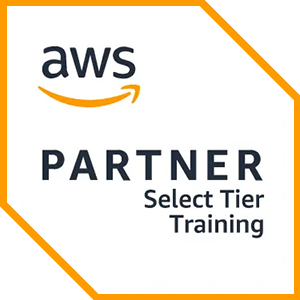Module 1: Explore the core capabilities of Dynamics 365 finance and operations apps
This module introduces learners to the core capabilities shared by the finance and operations apps. You will be introduced to the set of products included among the Dynamics 365 finance and operations apps. You will also learn about core shared capabilities, including reporting and integration. Finally, we cover additional marketing apps such as LinkedIn Campaign Manager, Dynamics 365 Customer Voice and Dynamics 365 Customer Insights.
Lesson
- Get introduced to the finance and operations apps
- Create reports and integrate finance and operations apps
- Lab : Navigate the finance and operations apps
- Lab : Explore Excel integration
After completing this module, students will be able to:
- Discover the suite of finance and operations apps that you can use for enterprise resource planning
- Describe use cases for finance and operations apps
- Describe built-in reporting capabilities
- Describe options for analyzing data
- Describe options for manipulating data with Microsoft products
Module 2: Learn the fundamentals of Dynamics 365 Finance
This module will introduce learners to the Dynamics 365 Finance application. Learn about the core capabilities, general ledgers, accounts payable and accounts receivable as well as expense management, fixed asset management and budgeting.
Lesson
- Explore Dynamics 365 Finance core capabilities
- Explore general ledger
- Explore accounts payable and accounts receivable
- Explore expense management, fixed asset management, and budgeting
- Lab : Create a main account
- Lab : Create a free text invoice
After completing this module, students will be able to:
- Describe Finance capabilities and features
- Describe use cases for legal entities
- Describe how Dynamics 365 Finance handles regional tax reporting requirements
- Describe cost accounting and journaling concepts
- Describe charts of accounts, including main accounts and classification
- Describe financial dimensions and dimension set concepts
- Describe periodic financial processes
- Describe core accounts payable components
- Describe vendor payments and settlements
- Describe core accounts receivable components
- Describe credit and collection processes
- Describe cash and bank management concepts
- Describe expense management, including cash advances and mobile workspaces
- Describe fixed asset management and fixed asset creation, acquisition, and depreciation
- Describe budgeting capabilities
Module 3: Learn the fundamentals of Dynamics 365 Supply Chain Management
This module introduces learners to the Dynamics 365 Supply Chain Management applications. You'll learn about the core functionality of the product as well as a discussion of warehouse and inventory capabilities and how it works leveraging different manufacturing strategies.
Lesson
- Identify general capabilities of Dynamics 365 Supply Chain Management
- Explore warehouse and inventory capabilities
- Explore manufacturing strategies in Dynamics 365 Supply Chain Management
- Lab : Create a product offering with various sizes and colors
- Lab : Create a purchase order
- Lab : Create a counting journal
- Lab : Create a production order
After completing this module, students will be able to:
- Describe product master records and product variants
- Describe trade agreements and discounts
- Describe costing methods
- Describe use cases for warehouse management system (WMS) and warehouse configuration options
- Describe purchase orders, item arrival journals, and cross-docking
- Describe inventory concepts
- Describe quality management capabilities.
- Describe manufacturing types and strategies
- Describe item tracking and tracing processes
- Describe tools that can be used to manage shop floors
- Describe master planning
Module 4: Learn the fundamentals of Dynamics 365 Commerce
This module introduces learners to Dynamics 365 Commerce. You will be introduced to the core capabilities of the application, such as channels and channel management, distributed order management as well as business-to-business (B2B) capabilities.
Lesson
- Explore Dynamics 365 Commerce capabilities
- Explore Microsoft Dynamics 365 B2B e-commerce, Store Commerce and Clienteling
- Lab : Create a product assortment
After completing this module, students will be able to:
- Describe commerce capabilities
- Describe distributed order management (DOM
- Describe the product assortment
- Understand the B2B digital commerce capabilities in the online channel
- Describe loyalty and clienteling concepts
- Describe how Dynamics 365 Commerce uses Dynamics 365 Customer Insights
- Describe Dynamics 365 Fraud Protection
Module 5: Learn the fundamentals of Dynamics 365 Human Resources
This module introduces learners to the Dynamics 365 Human Resources application. Learn about core human resources capabilities as compensation and benefits, compliance management, performance management and personnel management.
Lesson
- Explore Dynamics 365 Human Resources core capabilities
- Explore personnel management capabilities in Dynamics 365 Human Resources
After completing this module, students will be able to:
- Describe workers and positions
- Describe compensation and benefits capabilities
- Describe compliance features
- Explore performance management capabilities
- Describe self-service capabilities
- Describe leave and absence capabilities
- Describe employee training and certification features
- Identify integration options between Dynamics 365 Human Resources and LinkedIn
Module 6: Learn the fundamentals of Dynamics 365 Project Operations
This module introduces learners to the Dynamics 365 Project Operations application. Learn about the project life cycle management capabilities of the product, as well as project planning and execution capabilities.
Lesson
- Identify project life cycle management capabilities in Dynamics 365 Project Operations
- Explore the project planning and execution capabilities of 365 Project Operations
After completing this module, students will be able to:
- Describe project-based services and project types
- Describe the project lifecycle
- Describe project sales, contract, and pricing capabilities
- Describe project planning and execution capabilities
- Describe the work breakdown structure (WBS)
- Describe project invoicing and cost tracking capabilities




























 United Kingdom
United Kingdom Germany
Germany Denmark
Denmark Sweden
Sweden Italy
Italy Netherlands
Netherlands Finland
Finland















 Duration
Duration
 Delivery
Delivery  Price
Price